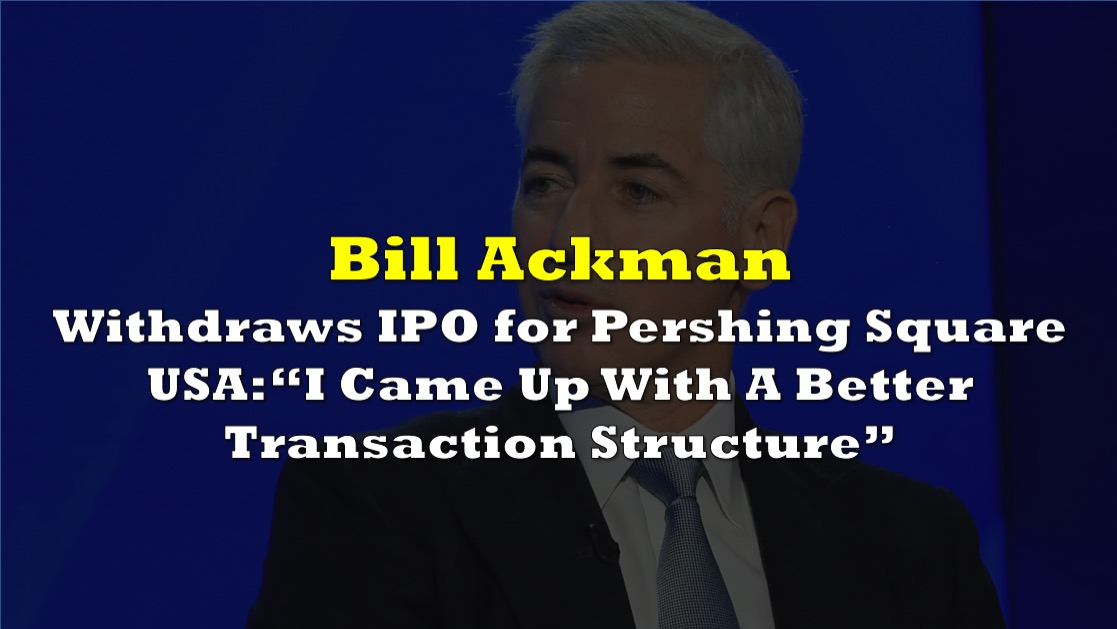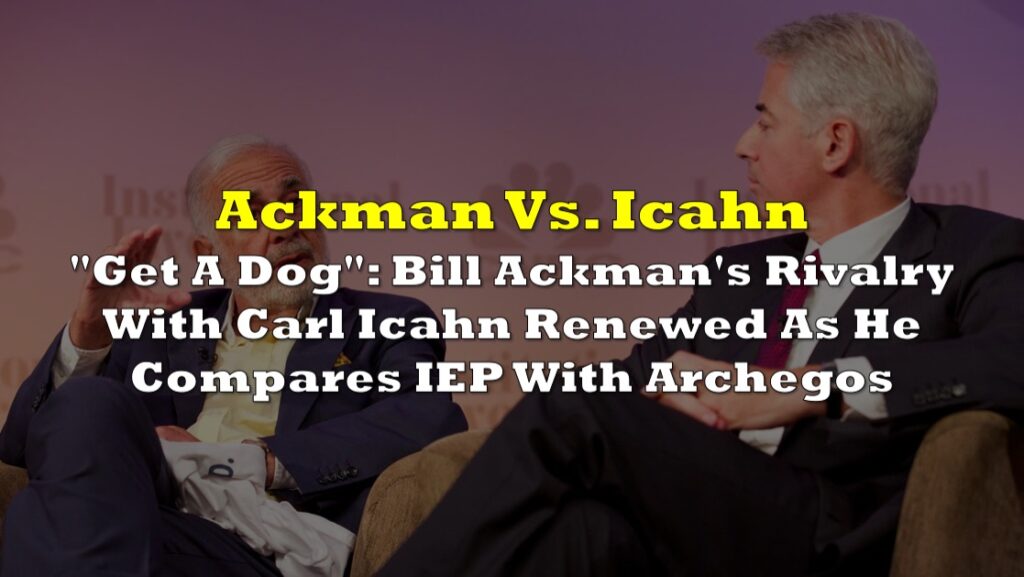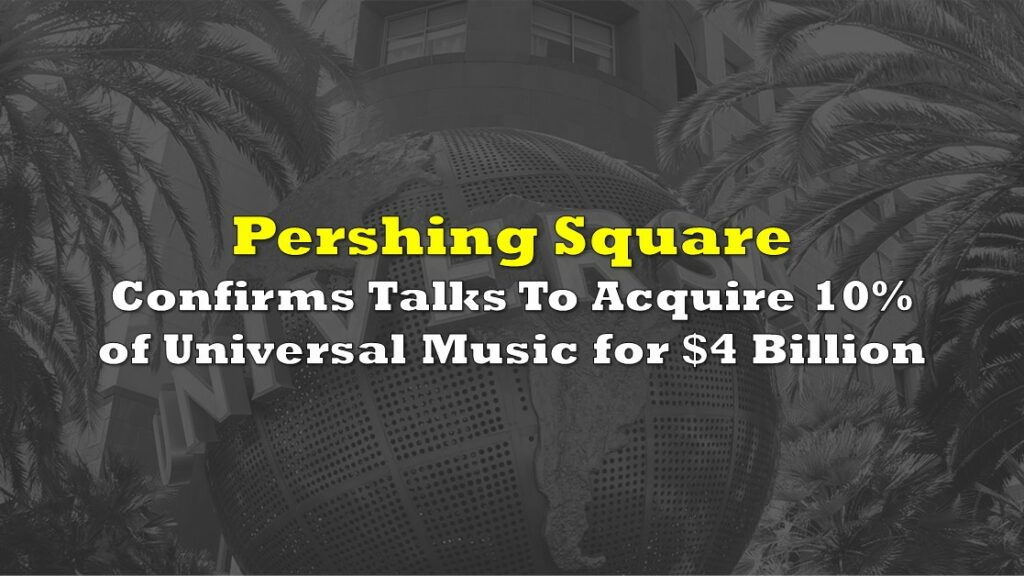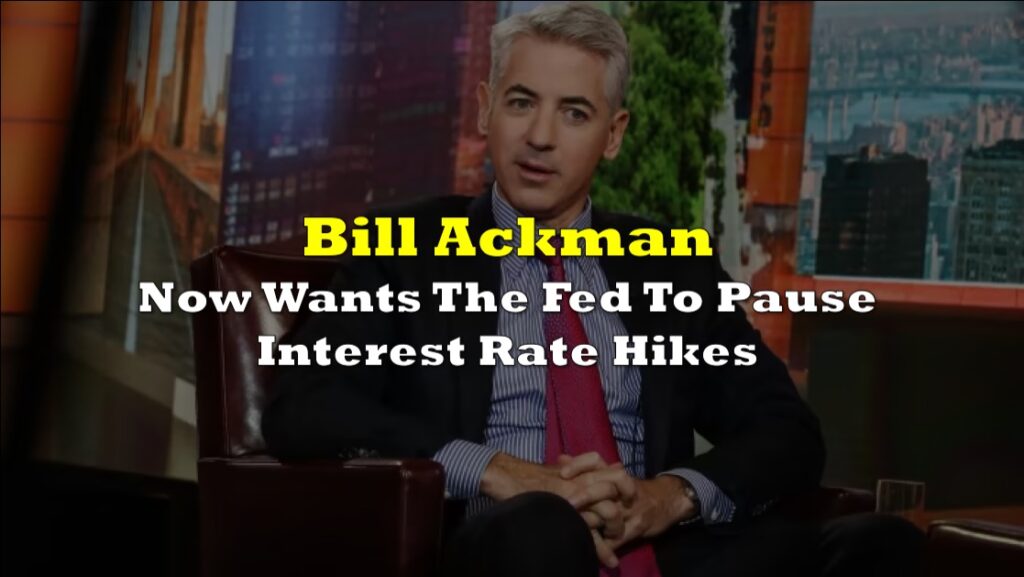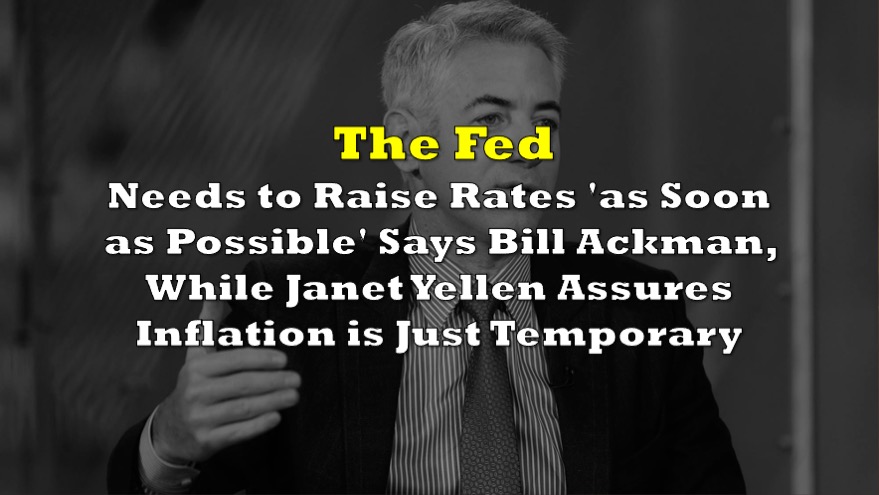Billionaire investor Bill Ackman has withdrawn the initial public offering (IPO) for his new venture, Pershing Square USA, after raising only $2 billion compared to the anticipated $25 billion. This decision comes just days before the fund was scheduled to start trading on the New York Stock Exchange.
Ackman, a prominent figure in the investment world with 1.3 million followers on the social media platform X (fka Twitter), announced the withdrawal in a four-paragraph statement.
“We will report back once we are ready to launch a revised transaction,” Ackman said, suggesting that his team is re-evaluating the fund’s structure for a future attempt.
Pershing Square USA, Ltd. Withdraws IPO
— Bill Ackman (@BillAckman) July 31, 2024
New York, July 31, 2024 //- Pershing Square USA, Ltd. (“PSUS” or the “Company”), today announced that it is withdrawing its previously announced Initial Public Offering (the “IPO”) of common shares of beneficial interest. Bill Ackman,…
Ackman later elaborated on X, saying, “I made the decision to withdraw the IPO (on Wednesday morning) when I came up with a better transaction structure.”
The withdrawal marks a significant setback for Ackman, who had unveiled plans in February for a lower-cost fund that would mirror the investments of his hedge fund, Pershing Square Capital Management, for U.S.-based investors, including retail customers. The fund was initially expected to raise as much as $25 billion, making it one of the largest IPOs in recent years and significantly increasing the $19 billion in assets currently managed by Ackman’s firm.
The decision to withdraw follows a series of events that raised concerns among potential investors. The fund’s structure, market conditions, and regulatory scrutiny all played roles in diminishing investor confidence. By last week, Ackman had already informed investors that the fund would be capped at $10 billion. By Tuesday, this expectation had further dwindled to $2 billion.
“While we have received enormous investor interest in PSUS (Pershing Square USA), one principal question has remained. Would investors be better served waiting to invest in the aftermarket than in the IPO?” Ackman noted in his initial post on Wednesday. This sentiment reflects the broader skepticism about closed-end funds, which have fallen out of favor as they often trade at a discount to their underlying assets. According to industry data, no closed-end funds were launched last year, and only six debuted in 2022.
Ackman had been actively engaging with top hedge and mutual funds in recent weeks, garnering considerable interest in the new vehicle. This would have been the first such fund since Pershing Square Holdings, a closed-end fund listed in Amsterdam, raised $2.9 billion a decade ago. However, concerns about the fund’s structure, particularly its tendency to trade at a discount or premium to its assets, remained a significant barrier.
To mitigate these concerns, Ackman’s firm committed $500 million as an anchor investment in what he termed a U.S.-listed investment holding company. Despite this commitment, investor apprehension persisted.
Last week, Ackman sent a letter to investors in his management company, providing an update on the listing process and soliciting further investments. This letter, which listed committed investors like the Boston-based hedge fund Baupost Group, was later filed with regulators, contributing to the delay in the expected start of trading.
The unexpected withdrawal of Baupost Group, led by the reclusive investor Seth Klarman, further spooked potential investors. This high-profile exit added to the growing uncertainty surrounding the IPO, ultimately leading Ackman to reconsider and withdraw the offering.
When you find out your Twitter friends aren't your real friends https://t.co/pACnioBqQD
— adoY^-1 (@1_adoy) July 31, 2024
Information for this briefing was found via Reuters and the sources mentioned. The author has no securities or affiliations related to the organizations discussed. Not a recommendation to buy or sell. Always do additional research and consult a professional before purchasing a security. The author holds no licenses.

